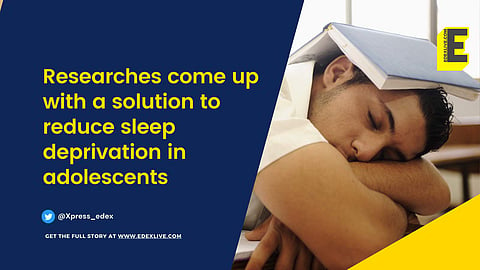

Teens and adolescents these days are experiencing disrupted sleep, daytime fatigue and changes in mood and focus when adjusting to a new sleep schedule at the start of the school year, stated a report in ANI. Even though they are supposed to get eight to ten hours of sleep per night to maintain their physical and mental well-being.
A report by ANI stated that the National Sleep Foundation and the American Academy of Sleep Medicine said that most adolescents get less than eight hours of sleep, especially on school nights.
Stephanie J Crowley, PhD, Associate Professor of Psychiatry and Behavioural Sciences and Director of the Pediatric Chronobiology and Sleep Research Program at RUSH said, "There are a lot of changes a teen goes through. One specifically is a change to sleep biology that happens during puberty."
"The brain systems that control sleep change in such a way that it's easier for an adolescent to stay awake later into the evening. One of these systems, the 24-hour circadian clock, shifts later in time," Crowley added, as reported by ANI.
Contents of the report
According to the report, there are two forces competing in an adolescent, the need to go to bed early for a school schedule and other is the biological change that happens naturally to a teen’s body. To confront this complex conflict, RUSH researchers set out to test a two-week intervention that targets the circadian system with different behavioural measures that will help teens/adolescents figure out a better nighttime routine.
To reduce sleep deprivation and to ensure children have enough sleep, the RUSH researchers used bright light therapy on two weekend mornings for a total of two and a half hours. The bright light will awaken the internal clock and this shift of waking up early will help them fall asleep earlier at night. This experiment shifted the sleep schedule of the adolescents by up to one and a half hours earlier, providing them with enough sleep hours every night by letting them sleep at the appropriate time, stated the report.
"The interesting thing is that teens with late circadian clocks shifted by up to two hours earlier," Crowley said and added, "And the teens who had an earlier circadian clock didn't need to be shifted any earlier. They just needed the behavioural support of trying to manage their time in the evening and increase their sleep duration."
ANI also reported that the RUSH researchers also found that the teens in the intervention group were less tired, less irritable and less worried and they exhibited better concentration. The students' morning alertness improved as well.
